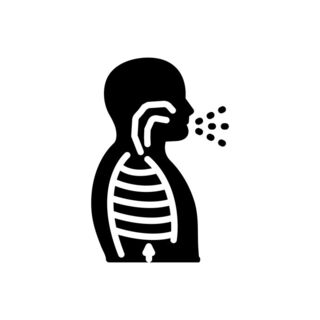Health
Treating 'Never-Ending' Hiccups
For some, intractable hiccups are a serious health problem.
Posted May 31, 2020 Reviewed by Gary Drevitch

In 1922, Charles Obsorne started hiccuping while weighing a hog before slaughter. He was never successfully treated and kept on hiccuping until 1990—one year before his death. Initially, hiccuping up to 40 times a minute, in later years, Mr. Osborne’s rate of hiccups abated to 20 times a minute.
We’ve all experienced hiccups from time to time. Most bouts are self-limited and require no treatment. Treatments for hiccups are difficult to study in clinical trials because of their short-lived nature. Nevertheless, in uncommon cases where hiccups don’t go away, interventions are required.
Hiccups can be transient (from seconds to minutes), persistent (lasting longer than 48 hours), or recurrent (ie, continual or repetitive). Typically the cause of hiccups is unknown, but when identified, the most common etiology is gastroesophageal disease. Other identifiable causes include heart attack, stroke, and drugs and alcohol.
Let’s take a look at 10 treatments for hiccups that don’t seem to go away. Of note, many of these treatments are based on anecdotal accounts.
- Chlorpromazine is an antipsychotic, also used for nausea, vomiting, tetanus, and anxiety before surgery. As a treatment for hiccups, it is much more effective when administered intravenously than intramuscularly. Adverse effects of chlorpromazine can be extrapyramidal, and include tremor, slurred speech, movement disorders, anxiety, and distress.
- Ketamine is a dissociative anesthetic that has been on the market in the U.S. since the 1970s for use in animals and humans. Dissociative drugs distort the perception of sights, sounds, and colors, as well as self-perception. (Another well-known dissociative drug is phenylcyclidine (PCP), or “angel dust.”) In addition to anesthesia, ketamine is also used to treat pain and depression. Research has shown that 0.5 mg/kg of ketamine can help cure postoperative hiccups that are refractory to other types of treatment. Postoperative hiccups can be a concerning issue, and they interfere with nutrition, sleep, and post-operative care, therefore extending and complicating the hospital stay.
- Metoclopramide is used to help with gut motility in those with diabetes. It also helps combat symptoms of nausea and vomiting. Limited evidence has shown that it may also help with intractable hiccups. Like chlorpromazine, extrapyramidal side effects can result from metoclopramide use.
- Quinidine is used to treat both heart arrhythmia and malaria. (It is also closely related to hydroxycholoroquine, which has been used as a speculative and controversial treatment for COVID-19.) At a molecular level, it may work to relieve hiccups by rendering the motor end plate insensitive to the neurotransmitter acetylcholine.
- Amphetamines are stimulants used to treat ADHD and narcolepsy, and may be effective in treating intractable hiccups.
- The anticonvulsant phenytoin is indicated to treat seizures, and has been used to treat intractable hiccups with mixed efficacy.
- Pharyngeal irritation via passing a catheter to the back of the throat and rotating it rapidly has been shown to help cure hiccups. This intervention should probably be done under anesthesia. On a related note, swallowing a spoonful of dry granulated sugar could trigger the afferent limb of the hiccup reflex, a sensory input that may counteract the original hiccup stimulus.
- Various manipulations to the phrenic nerve have been floated to cure intractable hiccups, including injection with a local anesthetic, electrical stimulation, and even crushing and avulsion (ie, tearing the nerve). Hiccups can result from damage or irritation to the phrenic or vagus nerve, which innervates the diaphragm. Destroying a nerve like the phrenic is serious business performed by a surgeon as a last resort. Importantly, when this intervention has been suggested in the past, respiratory function tests were recommended first.
- Vagal blockade may work for shortening an attack of acute hiccups. Vagal blockade can include carotid sinus massage, cold compresses to the face, or induced vomiting. Other temporary fixes include holding one’s breath, performing the Valsalva maneuver, breathing into a paper bag, and drinking a glass of water.
- Alternative or complementary medicine strategies including acupuncture and hypnosis have been used to treat intractable hiccups. Other interventions that lie outside the scope of common medical practice that may help with hiccups include sexual stimulation, rectal massage, and ejaculation, which may stop the reflex arc causing hiccups. Marijuana may also help.
For many with intractable hiccups, no magic bullet exists. Treatments may take hours to days to work, with hiccups gradually remitting.
References
Garvey, D. Post-operative Hiccups. Accessed 5/30/2020. http://www.med.ucla.edu/modules/xfsection/print.php?articleid=127
Quiroga JB et al. Hiccups: a Common Problem with Some Unusual Causes and Cures. British Journal of General Practice. 2016; 66: 584-586. DOI: 10.3399/bjgp16X687913.
Teodorowicz J, Zimny M. The Effect of Ketamine in Patients With Refractory Hiccup in the Postoperative Period. Preliminary Report. Anesthesia, Resuscitation, and Intensive Therapy. 1975; 3:271-2.
Williamson BWA, Macintyre IMC. Management of Intractable Hiccup. British Medical Journal. 1977; 2:501-503. DOI: 10.1136/bmj.2.6085.501


